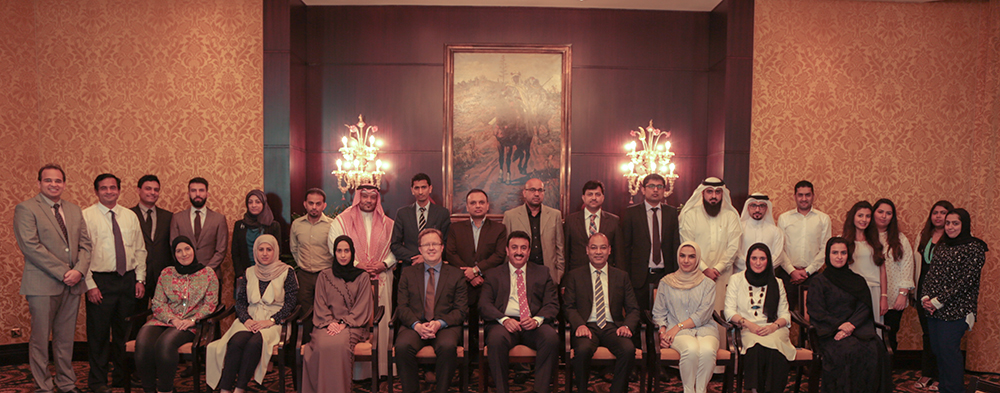BIBF holds a Master Class on the IFRS 9 Update
The Bahrain Institute for Banking and Finance (BIBF) held a Master Class on the latest update for the International Financial Reports Standards (IFRS 9) and other recent pronouncements, for senior finance executives in the Banking sector of Bahrain on the 8th & 9th of May 2016, organised by BIBF’s “Centre of Excellence for IFRS”.
This session covered the latest changes to the standards that were addressed in a Central Bank of Bahrain (CBB) circular on IFRS 9 issued on 15 November 2015. According to the circular every bank and financial institution supervised by the CBB should carry out a Quantitative Impact Assessment (QIA) focusing on the financial impact of the impairment components of IFRS 9, including the impact on the regulatory capital as a result of additional provisioning requirements that may arise. IFRS 9 would bring in changes to the classification, measurement, impairment and hedge accounting to replace the IAS 39 financial instruments: recognition and measurement.
BIBF’s Deputy Director, Dr. Ahmed AbdulGhani Al Shaikh said, “One of the BIBF’s main objectives is to maintain being the leading provider of innovative, industry-relevant qualifications to support the objectives of the CBB and aid in strengthening Bahrain’s position as a financial hub in the region.”
BIBF is proud to hold such events to benefit the financial services industry in Bahrain. This IFRS update programme gave participants from the banking sector an important opportunity to understand the standards better and discuss it with industry experts and fellow colleagues, Dr. Ahmed Al Sheikh added.
Head of Banking, Accounting and Finance at BIBF, Mr. Deen Jayah said, “This new standard would come into effect on 1 January 2018, all banks and insurance companies should be prepared well in advance, to meet the demands on structural changes to the IT systems, and operational policies that are required”.
This two day Master Class session provided a comprehensive overview of the developments exploring both the theoretical aspects and practical implementation issues of recent, new and proposed standards. The session was led by Mr. Lincoln Miles, an expert financial trainer and practitioner, who specialises in IFRS, US GAAP and UK GAAP.




